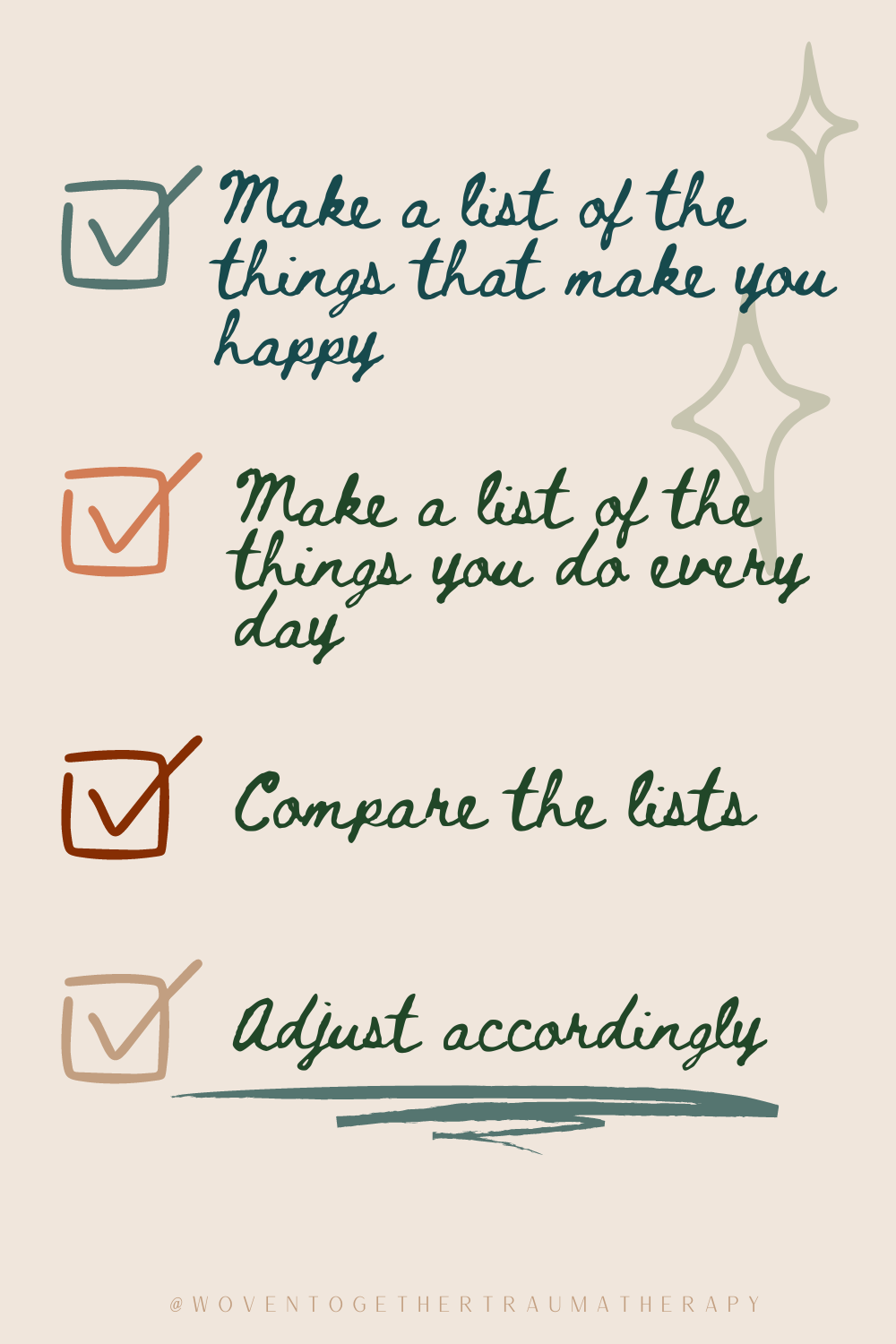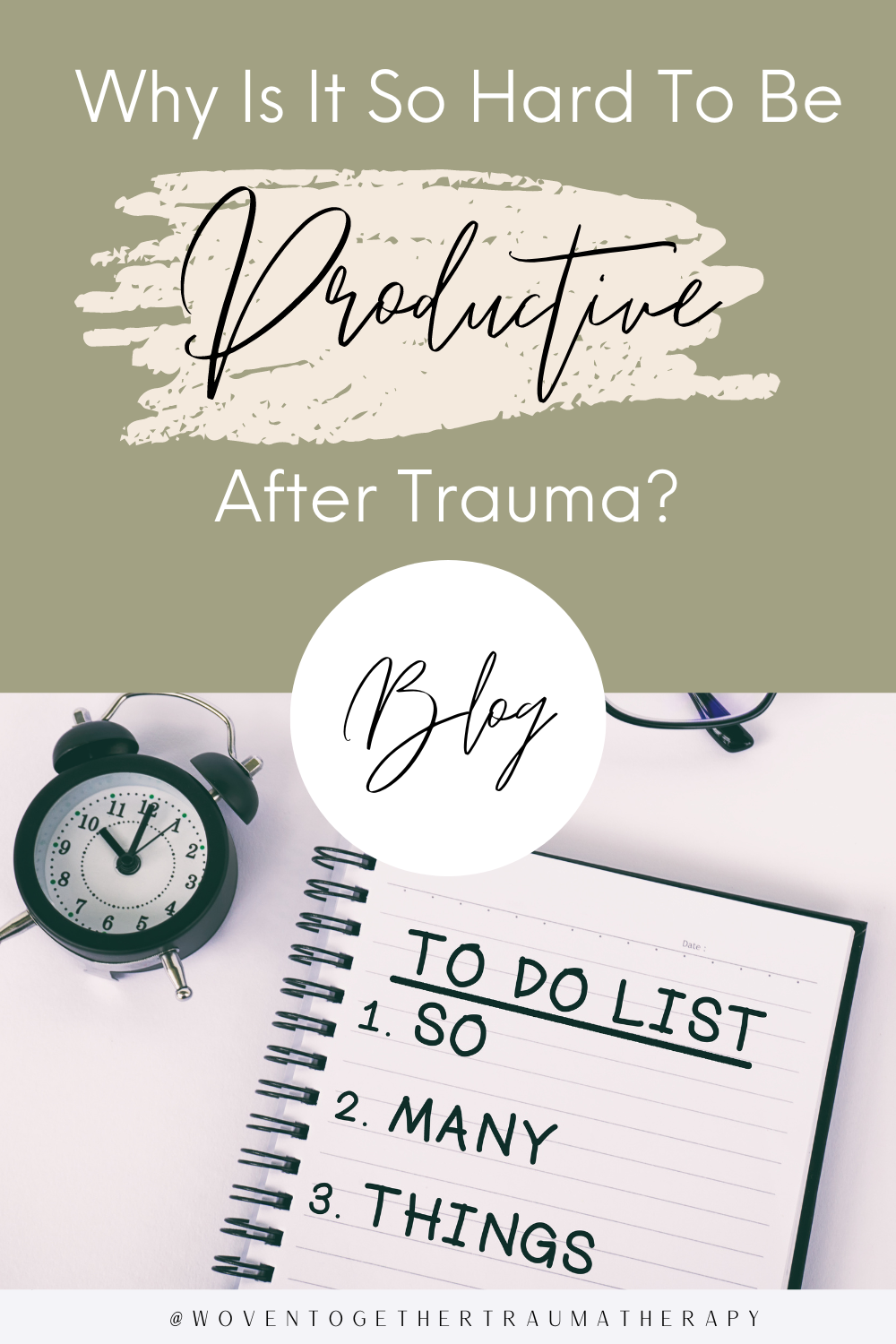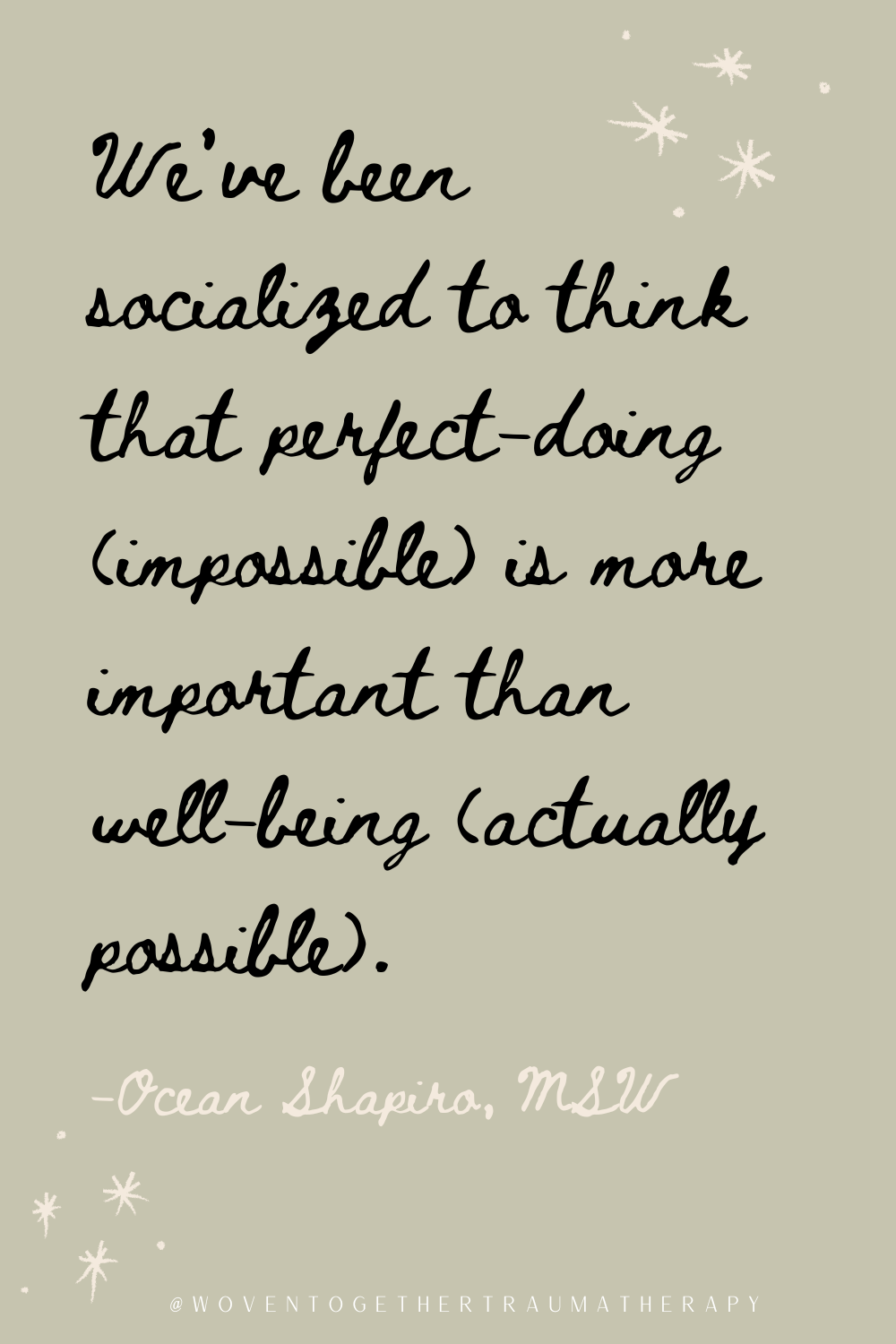Why is it So Hard to Be “Productive” After Trauma?
Is this usually how your day goes?
You wake up.
Wince as you stare at your phone to wake you up, scroll through your email (and maybe your feed, because it’s still up from last night), and then, it hits you: the whoosh in the pit of your stomach as you try to figure out how you’re going to do 101 things in the next 8 hours.
You have to do it all before you watch that show that helps you zone out, throw something together for dinner (or order out–let’s be real, you’ll probably order out), and fall asleep clutching your phone, simultaneously terrified of falling asleep and so angry at yourself for not getting enough sleep in advance to finally do better tomorrow.
You know you’re not going to do 101 things. But you have to. You always put things off, and your friends - (speaking of which, you should really get back to…all of them, today–add that to the list!). They don’t wake up and think normal life is overwhelming. They’re just adults, and you could be, too, if you ever got things done!
And yes, you’re on this site because you’ve gone through trauma. But it’s not happening right now. Why can’t you just do things like a normal person?
I hear you.
We’ve been socialized to think that perfect-doing (impossible) is more important than well-being (actually possible). That’s why those 101 things have been shoved from to-do list to to-do list so many times that you could be a shareholder in an Etsy stationary artist’s career right now. And I’m not here to tell you they’re not important, or that your trauma is a free pass not to do them.
I’m here to tell you that you need to redefine “productive” to fit where you’re at so that it’s a possible standard to achieve.
Sounds similar, right? Well, it’s not.
Let’s take a quick trip over to that neuropsych 101 class you wish your professor had made a lot more fun at 8 in the morning.
Post-traumatic stress disorder changes how your brain works.
It makes a lot of things seem like a threat, so you’re in survival mode more than not.
You think (and feel) about what’s happened to you because of subtle reminders you can’t control.
Your memory can get hazier.
Your concentration can tank.
You might blame yourself, for what happened and what’s happened since.
Still with me? Good. Because this is where all that self-blame over your to-do list comes in.
All of the above can create the perfect storm*
You keep randomly getting triggered and pulled out of whatever you’re doing (like, I don’t know, responding to that friend who you talked to right after one of the worst things that ever happened to you)
You can’t focus to save your life whenever it counts.
You can’t remember what you were supposed to be focusing on (aaaaah!)
You avoid things that subconsciously scream Return to Nightmareville
You have a growing to-do list that makes your cortisol go through the roof
Last but not least, you blame yourself for how “lazy” you are
When exactly were you supposed to be slip-n-sliding through this ever-growing to-do list of yours?
Of course, you need to open your mail (and 100 other things). But you need to manage your PTSD symptoms and (safely) process your trauma so that the daily cycle doesn’t get worse.** These symptoms can make the smallest things (let alone working, staying awake, staying asleep, going outside, etc.) ridiculously hard. And if you want to get things done, step one on today’s to-do list might be rethinking your approach.
Your brain is very good at scanning your environment, both internally and externally, for threats to your survival. In fact, it’s probably reacting to perceived threats most of the time you can’t seem to take that next step in your day. And that doesn’t make you “unproductive” or “lazy.” It just means your brain frequently has different goals than you want it to. And, to be fair, its goal isn’t terrible: it’s good to stay alert when true danger is afoot. It’s just misperceiving true danger. So the result is exhaustion, distraction, and great fuel for those self-loathing thought spirals.
Which leads me to my main point: is your definition of “productive” within your capacity right now? Or is it the same for everyone? Who are you basing your definition off of and why?
Really. Type out or write down what “productive” means to you.
Now, who’s that definition for? Where’d you first hear it? Why was it so appealing to you?
Last question: how might PTSD be affecting your ability to be “productive”?
See what I’m getting at here?
If your days boil down to triggers, yelling at yourself to just “do the thing,” forgetting what you were doing, losing track of time (let alone the task at-hand), and prime-time anxiety, isn’t it important for “productivity” to account for the trauma?
We need to account for wellness in what we strive for and think about what can change how we operate. Productivity should be possible for people who’ve experienced trauma, because everyone deserves a life after trauma where they feel like they’ve accomplished something.
You do, after all. You got up today and you’re reading this. You care about what happens to you. You just do it differently than other people do.
In the second part of my blog post series on productivity, I’ll go into what you can do to start to make your to-do list happen (because this work involves more than just the tasks themselves). For now, I’ll share my definition of “productive”:
Being able to accomplish what is necessary without causing yourself distress or shame.
Write your own definition, and see how different it feels.
Did this ring true for you? Looking for a therapist who specializes in Complex PTSD and procrastination? Our therapists and coaches can help. Book a therapy or coaching appointment with our therapist matchmaker to begin your healing journey today. (Therapy is only available in CA, coaching is available worldwide.)
Interested in learning more about our unique approach to trauma therapy?
These blogs talk more about the basics of EMDR:
You can read more about Ketamine Assisted Psychotherapy here:
References:
*Chen, J. J. (2019, April 10). Productivity Hacks Don’t Work When You Have Mental Illness. Elemental. https://elemental.medium.com/productivity-hacks-dont-work-when-you-have-mental-illness-4635239860c6
**Davis, L. L., Schein, J., Cloutier, M., Gagnon-Sanschagrin, P., Maitland, J., Urganus, A., Guerin, A., Lefebvre, P., & Houle, C. R. (2022). The Economic Burden of Posttraumatic Stress Disorder in the United States From a Societal Perspective. The Journal of Clinical Psychiatry, 83(3). https://doi.org/10.4088/jcp.21m14116

















